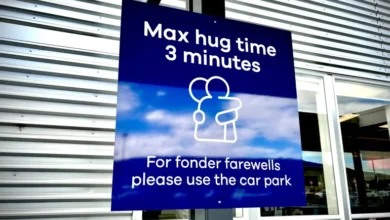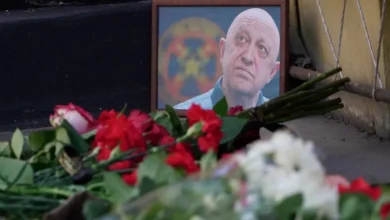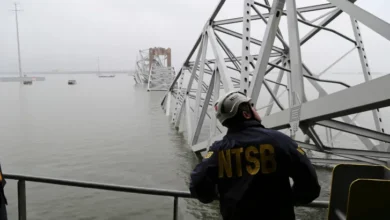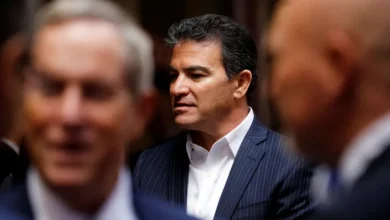More bodies go unclaimed as costs of funerals climb in Canada
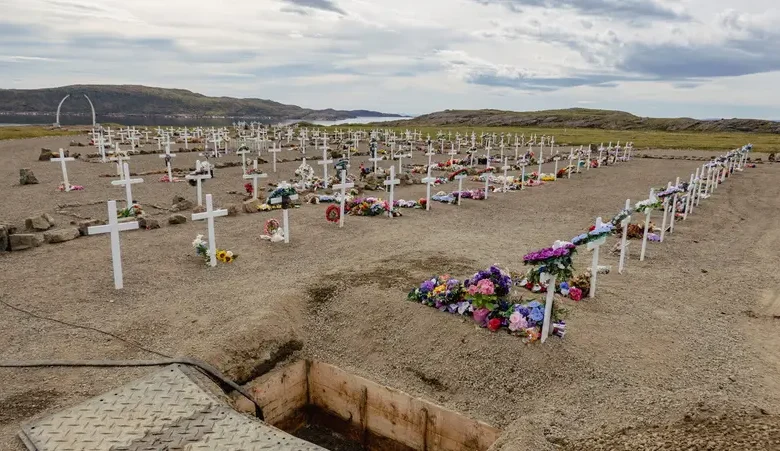
Some Canadian provinces have logged a jump in unclaimed dead bodies in recent years, with next of kin citing funeral costs as a growing reason for not collecting loved ones’ remains.
The phenomenon has prompted at least one province to build a new storage facility. Demand for memorial fundraisers has surged.
The overall cost of a funeral in Canada at the top end has increased to about $8,800 from about $6,000 in 1998, according to industry trade group estimates.
In Ontario, Canada’s most populous province, the number of unclaimed dead bodies rose to 1,183 in 2023 from 242 in 2013, said Dirk Huyer, the province’s chief coroner.
In most of those cases, next of kin were identified but unable to claim the body for a variety of reasons, the most common being money. Finances went from being the reason for 20 percent of the total unclaimed bodies in 2022 to 24 percent in 2023.
“It’s distressing because it’s a person who has passed and there’s nobody – family, friends, or others – that are in a position to be able to provide instructions or plans for that person after their death,” Huyer said.
Officially, in Ontario, a body is deemed unclaimed after 24 hours. But the coroner’s office staff may spend weeks trying to locate next of kin, he said.
If the relatives confirm they are unable to claim a body, the local municipality works with a funeral home to provide a simple burial.
In the meantime, the body is kept in a morgue or temperature-controlled storage facility.
“There’s always been families that are in need of additional assistance. (But) I’ve never seen the number of unclaimed remains that currently exist,” said Allan Cole, owner of the Toronto-based funeral home MacKinnon and Bowes.
In Quebec, the number of unclaimed bodies grew to 183 in 2023 from 66 in 2013.
In Alberta, the number of bodies for whom no next of kin could be located to claim them rose to 200 in 2023 from 80 in 2016.
Historically, the Health Sciences Centre in St. John’s, Newfoundland and Labrador did not encounter enough unclaimed remains to warrant long-term storage, a spokesperson for Newfoundland Health Services told Reuters.
Now, in the wake of an uproar over unclaimed bodies kept in freezers outside the hospital, the province is constructing a permanent storage unit to hold remains.
“People weren’t claiming bodies because they realized they couldn’t afford to bury them,” said Jim Dinn, leader of the province’s opposition New Democratic Party. “It’s not about building a bigger storage unit: It’s about addressing the underlying cause causing the accumulation of bodies and removing the barriers so people can have a dignified burial.”
Location matters
An adult single grave with the Mount Pleasant Group on average costs $2,800, but the price in midtown Toronto was $34,000 as of April 1, according to the website of the cemetery, funeral and cremation provider across the Greater Toronto Area.
The price excludes opening and closing of the grave, funeral, tombstone, taxes and other items.
A funeral can cost C$2,000 to C$12,000, said Funeral Services Association of Canada President Jeff Weafer, up from about C$1,800 to C$8,000 in 1998.
The number of memorial fundraisers on crowdfunding site GoFundMe has ballooned to 10,257 in 2023 from 36 in 2013, a spokesperson for the site said.
Government support for funerals has failed to keep pace with rising funeral costs, advocates have said.
The federal government announced a C$2,500 top-up to the C$2,500 death benefit in the Canada Pension Plan in the April budget.
“Losing your life partner or spouse is devastating for a senior. It can also be an immense financial burden after a lifetime of hard work,” Katherine Cuplinskas, press secretary for Finance Minister Chrystia Freeland, wrote in an email.
“That is why we are strengthening the Canada Pension Plan to provide a top-up to the death benefit.”
That is not enough, Weafer said.
“This is not a respectful end for Canadians,” he said. “The reason deceased individuals are going unclaimed by their families is about affordability.”





